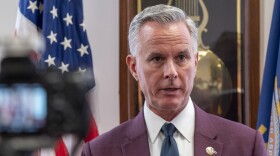-
Federal law requires schools to verify free and reduced lunch eligibility for a random sample of recipients, but a new bill would require it for every student who receives a free lunch. One school official says the change would turn two months of work into a year-round responsibility.
-
‘Bible is pretty clear about where God’s heart is’: Kansas bill would make clergy mandated reportersHouse Bill 2352 adds fully ordained ministers to the list of professions required to be mandatory reporters if they suspect a child has been harmed as a result of physical, mental or emotional abuse, as well as abuse, neglect or sexual abuse.
-
House Bill 2497 would add language that allows lenders to charge prepayment penalties for investment properties but leave the ban in place for consumer personal loans.
-
State auditors urged Legislature to find new way of determining at-risk student aid
-
The system is not working, an advisory committee found after an 18-month review of Kansas’ guardian ad litem, or child in need of care, system.
-
The two bills would increase the severity of penalties for theft to level 5 or 6 nonperson felonies and set new thresholds for implementing penalties.
-
Counties also would have to figure out how to handle primary ballots, where only registered Republicans and Democrats can vote in their party’s races while nonpartisan elections would be conducted at the same time.
-
Applicants would have to foot the cost of a background check, or a school district could cover it.
-
Abortion is Murder, a Christian group known for protesting with graphic signs, was permitted to protest inside the Kansas Statehouse just a few months after the Satanic Grotto was blocked from doing the same. The group says it is planning a counterprotest.
-
Policies aim to get ahead of Legislature’s debate about weakening tenure rights

Play Live Radio
Next Up:
0:00
0:00
Available On Air Stations










